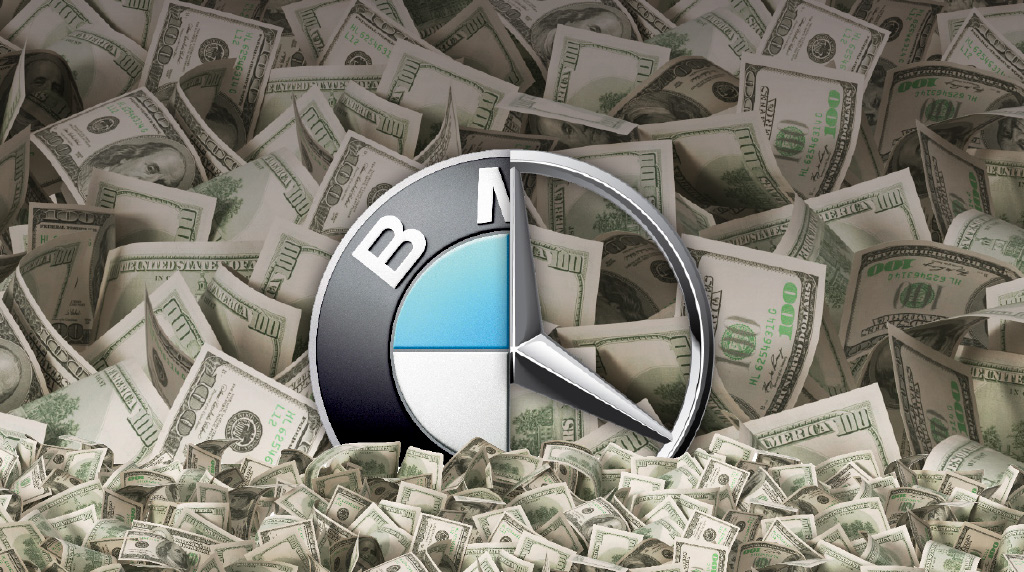The UK-based Financial Times is quoting senior managers from both companies saying that they will keep prices high when the chip crisis ends and that they plan to restrict supply and push their focus to their high-end, high-margin luxury models.
The newspaper said the willingness of consumers to pay higher prices during the pandemic has seen the carmakers shift further away from a volume-based approach.
It also said luxury car makers had already made up their minds up to stop chasing volumes and market share for luxury cars before COVID-19 because chasing share eroded brand value and the ability to price at a premium but the “customers’ willingness to pay higher prices during the pandemic has emboldened them to go further”.
By limiting the volume of premium models they ship once the industry-wide chip shortage eases, they plan to lock in the hefty price increases they have achieved during the pandemic.
Harald Wilhelm, Daimler’s chief financial officer told the Financial Times: “We will consciously undersupply demand levels.” He went on to say: “At the same time we (will) shift gears towards the higher, the luxury end.”
Mr Wilhelm said that while the chips shortage has artificially lifted prices, “one day or another the semis issue will be gone and we will carry on with the price, and the margin, and the mix focus”.
Chief financial officer of BMW, Nicolas Peter, told the Financial Times that the Munich-based car maker had “seen a significant improvement in pricing power in the last 24 months”.
Mr Peter said the plan was “clearly to maintain . . . the way we manage supply to maintain our pricing power on today’s level”.
The Financial Times article said: “Industry executives, car dealers and analysts say that the chip shortage … will herald a new approach in pricing and selling premium models”.
Arndt Ellinghorst, an analyst at Bernstein, told the business paper: “The pandemic has really opened everyone’s eyes — that a different paradigm is possible. Everyone loves it, including dealers.”
He said that discounts typically offered to customers at dealerships — usually around 15 per cent in mature markets — have been slashed, with some models being sold above sticker price.
According to Mr Ellinghorst, a one percentage point decrease in the average discount would release $20 billion in extra profits for car manufacturers. He said discounts in Europe and the US have dropped by at least double that amount from their pre-pandemic peak.
Mr Peter said that the BMW’s US dealers had always insisted that they needed their cars to sell in the showroom; that the customer “expected to pop in on Saturday morning, 10am, and he wants to leave with everything done, fixed number plates on the car at 1pm latest”.
He said that dealers were now reporting that customers are ready to wait three to four months, “and this is helping our pricing power”.
He added: “Of course the waiting time must not be too long, but if you buy a premium car like a BMW, it’s an emotional decision . . . to have a short waiting time is something, I believe, which makes the customer experience even greater and better.”
The paper said the increased pricing power had already fed through to the bottom lines for BMW and Daimler. Mercedes achieved a 12.2 per cent return on sales in the last reported quarter, up from 8.4 per cent in the same period in 2018 — the last measure not affected by the pandemic or diesel emissions litigation costs. BMW’s margin reached almost 16 per cent, up from 8.6 per cent.
The lead motor industry partner at Pitcher Partners, Steve Bragg, told GoAutoNews Premium that the OEMs, especially the luxury and prestige car makers, needed to increase their prices “to make it all work” especially with their massive investments in electric vehicles and the slow take-up of pure EVs.
“The current market situation has provided them with the opportunity to get the consumer used to paying more for cars and waiting for their vehicles instead of what became the instant gratification of buying the vehicle and driving home on the same day.
“So it’s moving to a one price situation where this is the retail price and they are not going to discount because they don’t have the stock. And if you want a new vehicle, you just have to wait.
“I think long term that’s really helpful to OEMs because it allows them to start to educate the customer or to train the customer in a way that they’re used to paying the retail price and they’re used to waiting for the stock which will be to the benefit of the OEM and, in the end as well, the retailer.
“I must say that I always thought it was very interesting that about a decade or so ago the luxury car makers were going heavily into volume which was an interesting play because they were eroding their margins and the exclusivity that was so important to the desire to buy that brand.
“In my experience, the dealers weren’t particularly happy because a Benz, for example, was always a badge of honour or an item that you coveted. It was a luxury vehicle that you aspired to buy and that you had to have. But it soon became: Here I am 20 something, I just got my first job and now I’m driving in A-Class.”
By John Mellor













 Read More: Related articles
Read More: Related articles

